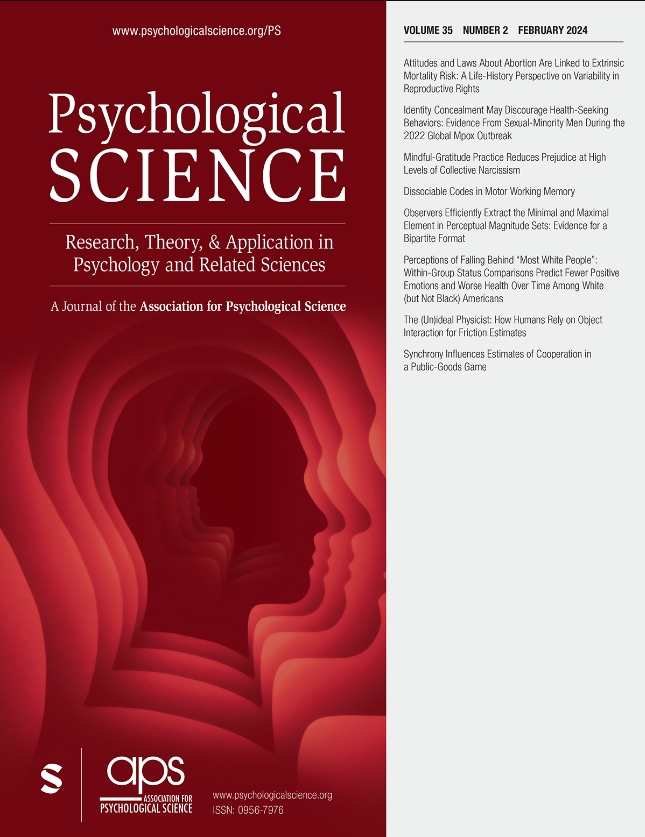不同意见会被误认为是不善于倾听
IF 4.8
1区 心理学
Q1 PSYCHOLOGY, MULTIDISCIPLINARY
引用次数: 0
摘要
在职业和个人交流中,让人感觉自己被倾听是非常重要的,然而,即使他人倾听得很好,他们也会感觉自己没有被倾听。我们认为,产生这种感觉的原因可能是说话者将同意与倾听质量混为一谈。在 11 项研究中(研究对象为 3,396 名成年人),我们保持或操纵了听者的客观倾听行为,仅在谈话结束后操纵了听者是否同意说话者的观点。在不同的话题、媒介(如视频、聊天)和客观倾听质量线索中,说话者始终认为不同意的听众是较差的倾听者。在控制了对听众的其他正面印象(如好感度)后,这种效应依然存在。出现这种效应似乎是因为说话者相信自己的观点是正确的,从而推断出持不同意见的听话者一定没有很好地倾听。事实上,一个人要同时表达自己的不同意见和自己在倾听,可能会非常困难。本文章由计算机程序翻译,如有差异,请以英文原文为准。
Disagreement Gets Mistaken for Bad Listening
It is important for people to feel listened to in professional and personal communications, and yet they can feel unheard even when others have listened well. We propose that this feeling may arise because speakers conflate agreement with listening quality. In 11 studies ( N = 3,396 adults), we held constant or manipulated a listener’s objective listening behaviors, manipulating only after the conversation whether the listener agreed with the speaker. Across various topics, mediums (e.g., video, chat), and cues of objective listening quality, speakers consistently perceived disagreeing listeners as worse listeners. This effect persisted after controlling for other positive impressions of the listener (e.g., likability). This effect seemed to emerge because speakers believe their views are correct, leading them to infer that a disagreeing listener must not have been listening very well. Indeed, it may be prohibitively difficult for someone to simultaneously convey that they disagree and that they were listening.
求助全文
通过发布文献求助,成功后即可免费获取论文全文。
去求助
来源期刊

Psychological Science
PSYCHOLOGY, MULTIDISCIPLINARY-
CiteScore
13.30
自引率
0.00%
发文量
156
期刊介绍:
Psychological Science, the flagship journal of The Association for Psychological Science (previously the American Psychological Society), is a leading publication in the field with a citation ranking/impact factor among the top ten worldwide. It publishes authoritative articles covering various domains of psychological science, including brain and behavior, clinical science, cognition, learning and memory, social psychology, and developmental psychology. In addition to full-length articles, the journal features summaries of new research developments and discussions on psychological issues in government and public affairs. "Psychological Science" is published twelve times annually.
 求助内容:
求助内容: 应助结果提醒方式:
应助结果提醒方式:


